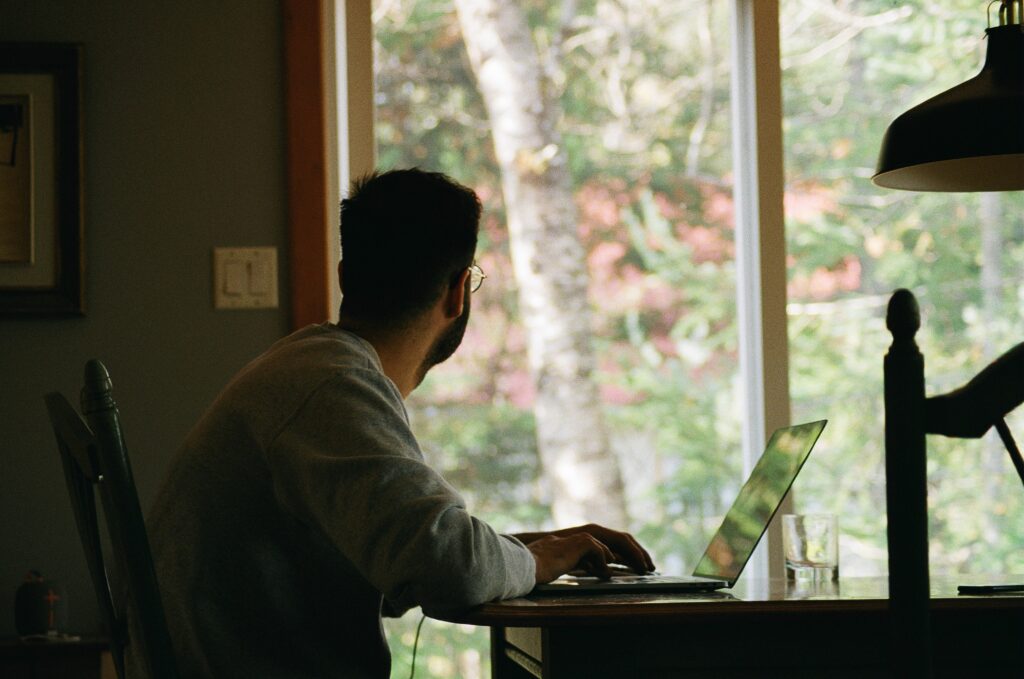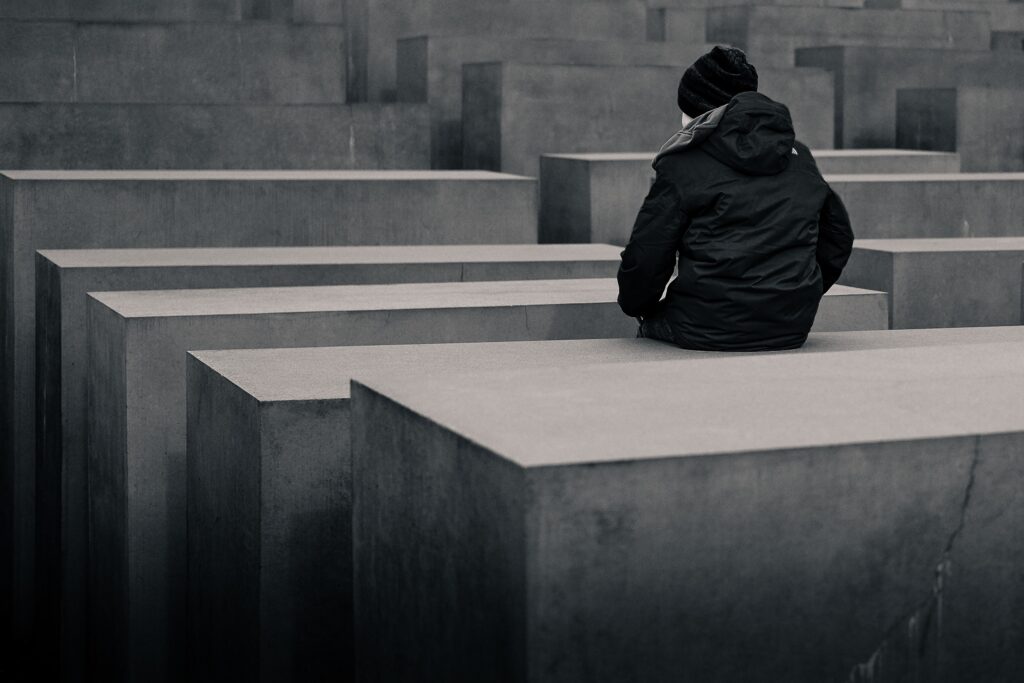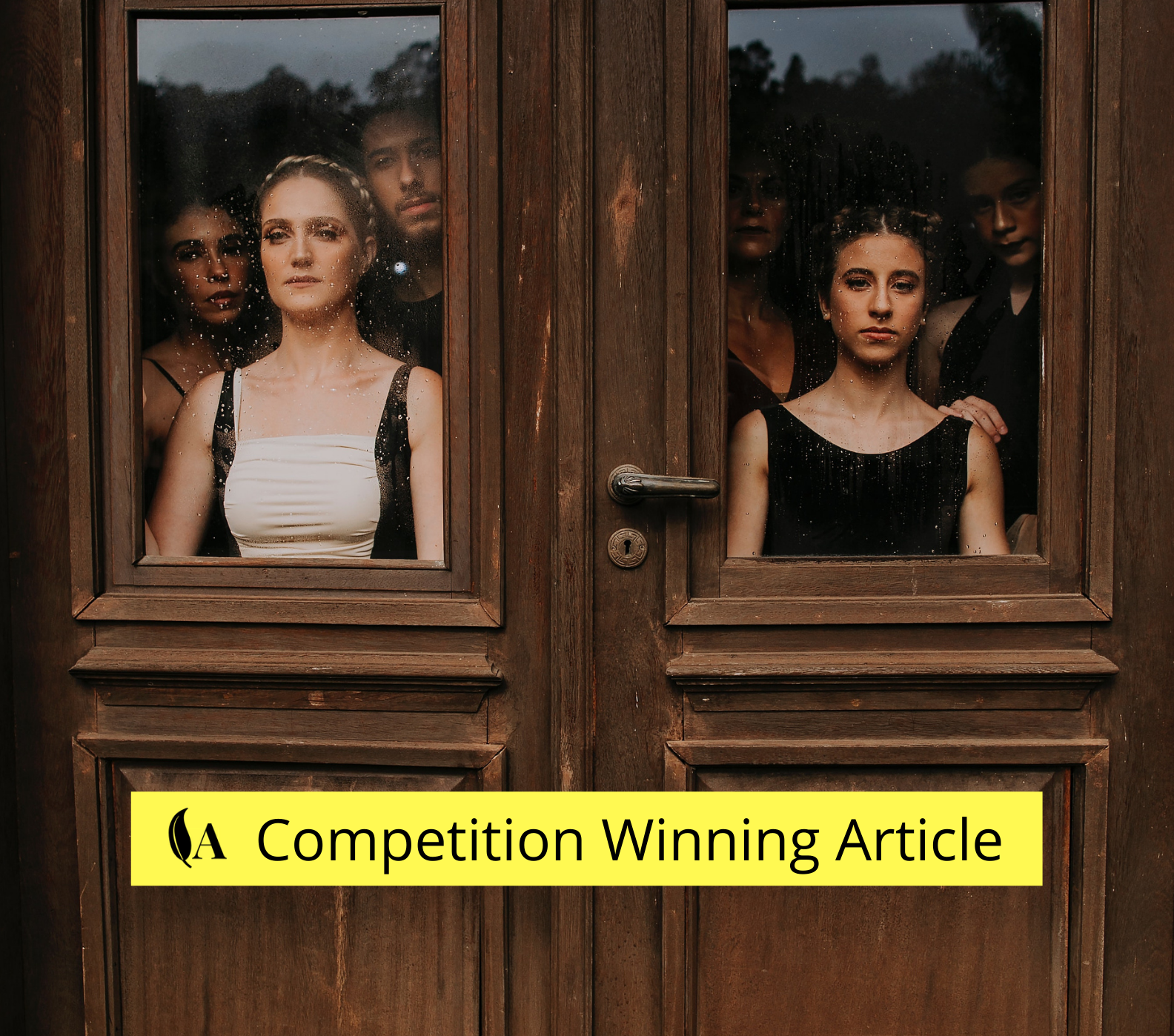
Lessons for lockdown from a Holocaust survivor
As today is Holocaust Memorial Day, we offer an article explaining how the great Jewish psychiatrist Viktor Frankl survived various Nazi concentration camps and the lessons his experience might offer us for lockdown. We also draw your attention to Ronnie Convery’s powerful account of his visit to Auschwitz which we published last year
Psychiatrist Viktor Frankl developed a unique approach to life which enabled him to survive various Nazi concentration camps. Clare Cooper explains how his approach could be adapted to lockdown.
Breakfast began badly (I should never have looked at my phone). A sad flurry of shared lockdown angst bounced between phones as my closest friends shared their struggles and frustrations, virtually of course, in a series of glum texts.
I came to the conversation late and wondered what to add. The sadness and frustration resonated with me as, I suspect, it will resonate with many of you. To top it off, many parts of my country this week are experiencing flooding with thousands in my neighbourhood currently being told to evacuate their homes. Life can feel brutal, tough and unfair. But was that all I could offer my already deflated friends?
I thought about my admirable and resilient older sister telling me yesterday of the book she had decided to read, a fiction book based on the life of a persecuted Catholic saint, because she said she felt she needed to stop herself wallowing. Munching my bran flakes, I thought too about the Austrian Jewish psychiatrist and Holocaust survivor Viktor Frankl (an absolute hero of mine) and what he might offer to the conversation.
And, last, but by no means least, I thought fondly of my late grandma, the smallest but toughest lady the world has ever seen, and wondered – as many of us have – whether these trying times will make us better, kinder or more resilient as a result.
Certainly the experience of rationing and savouring every bite of banana, making a bomb shelter in her garden, and sewing clothes for evacuated children shaped and formed my grandma into the strong, fiercely caring and extremely hardworking woman she became.
Perhaps some of the hardships and sacrifices we’ve experienced in this time might lead our generation to develop some positive traits as a result.

A cynical voice in my head replied: strength of character built on lounging on our sofas with excessive netflix and a lack of social contact? Yeah right.
Viktor Frankl’s triumphant answer overpowered my other musings: “It is up to us. Or rather, to me”.
The question is not: will we, abstractly and collectively, be ‘made’ stronger or kinder in some way by this experience? But will I respond in a way that develops my strength, my kindness, my resilience and my patience?
Frankl’s incredible and inspiring book, Man’s Search for Meaning, is an absolute must read. If you haven’t read it, now is a great time to do so. Based on his experience of being a professor of neurology and psychiatry and his subsequent three years surviving in several concentration camps, including Auschwitz, Frankl’s book is not simply a heart-rending account of tragic events, but an extraordinary testament to the capacity of human beings to overcome even the most horrendous situations .
He asserts that everything can be taken from us (he lost his entire family – parents, wife and children – to the Nazis) but there’s one thing which cannot be taken, what he calls, “the last of the human freedoms: to choose one’s attitude in any given set of circumstances.”

Frankl, in my opinion, came out of Auschwitz victorious; not simply alive, but untainted by the evil that had surrounded him during those years. He fought against and vanquished the ugly, instinctive greed and the selfish sense of self-preservation which many prisoners succumbed to in their struggle to survive in the camps.
I am not qualified to comment on Frankl’s brand of psychotherapy, ‘logotherapy’, (see our article Frankl and his shadow) which argues that the search for meaning is the principal motivational force for any human being. It is his living witness to the human ability to retain autonomy and selflessness in the midst of suffering that has motivated me repeatedly in the tougher moments of my life.
Frankl writes: “Every day, every hour, offered the opportunity to make a decision, a decision which determined whether you would or would not submit to those powers which threatened to rob you of your very self, your inner freedom.”
Perhaps lockdown is, after all, the perfect opportunity for us to make a similar decision.
In lockdown mode these opportunities don’t just fly by, lost in our busy lives. We have time to reflect. We have time to practise. We have time to repeat groundhog day and try to make other choices. If you have watched the lovely romcom ‘About Time’, this will resonate … repeating every day and choosing a better response to the situation, a happier, more positive and more grateful response.
This is how each one of us individually, but as part of a bigger collective, will see the fruit of our current trials. It is a constant, daily, boring and repetitive struggle to improve ourselves.
(But, thank God, we’re spared the painful and tortuous monotony of three years in a concentration camp that Frankl utilised to improve himself.)
It requires humility, self-reflection and realising we’re lazy or short-tempered or self-indulgent. And, it requires self-love (of a kind our generation desperately needs to learn), forgiving our failings and encouraging ourselves as we strive to be patient with our attempts to improve.
And let’s not become demoralised or belittle our attempts. Frankl, although remarkable, simply lived each monotonous day. Whilst our attempts to live each monotonous day might seem feeble in comparison, they are not.
Rising from bed each morning, standing tall, is a choice to live well, as opposed to not doing so. Then, if you’re religious, pausing to focus your mind and offering to God all that the day ahead may have in store. And then making your bed, keeping your room tidy, getting down to work. These are all statements of living in an intentional and positive way.
Every attempt to be kind to those we might feel at times we’ve had enough of, whom we are locked down with, is a choice to be kind rather than irritable. Every time we endure yet more screen time to check in with our loved ones and hear how they’re doing, when perhaps the last thing we wanted at that moment was a conversation about lockdown and loneliness, is a choice to care and look outwards.

This is what Frankl means by every hour giving us the opportunity to make a decision and what he lived out with such integrity. It was not that, even in Auschwitz, every hour required some remarkable act of bravery, but rather that such small, mundane decisions are vitally character-building, and so your lockdown efforts are not to be belittled. We should pat ourselves on the back and keep working on making those choices as regularly as we can.
How do we motivate ourselves every day in the monotonous struggle? And why should we bother?
The ultimate answer for Frankl is meaning. His simple equation states:
D = S – M
Despair is suffering without meaning.
With meaning and purpose humans can endure – as he proves – unimaginable suffering, without falling into despair.
So let’s give some thought to what provides this meaning for us. For a start, I think we all want to see a better, kinder world (when we’re allowed out into the world again.) We wish to see it, but maybe we don’t think we have much part in it. But we do – we have our part in it, and we have our friends and family to inspire and motivate. The potential ripple effect from our efforts is up to us and could be significant.
Self-improvement and building our strength of character, for ourselves and for our loved ones, are meaningful and worthwhile in themselves.
Perhaps for you, this meaning touches on something greater. Echoed especially in biblical stories, culminating in a God who suffers and dies to save us, there is a paradoxical yet intrinsic connection between sacrifice and love. Think of mothers who suffer in childbirth, the doctors who are working through the night on crowded wards, and of individuals like the priest Maximilian Kolbe (another extraordinary Auschwitz prisoner) who offered to die in the place of a husband and father of two sons.
Perhaps in the monotony of our lockdown days, we would do well to use our time daring to ponder these issues and find a meaning that enables us to choose our response to trials well and without despairing.
So, let’s keep running the marathon and keep improving our response to what is both, I think, a frustrating situation and a unique opportunity for self-improvement.
I’ll give Frankl the last word. He deserves it:
“For what then matters is to bear witness to the uniquely human potential at its best, which is to transform a personal tragedy into a triumph, to turn one’s predicament into a human achievement.”
Related articles
Like what you’ve read? Consider supporting the work of Adamah by making a donation and help us keep exploring life’s big (and not so big) issues!

